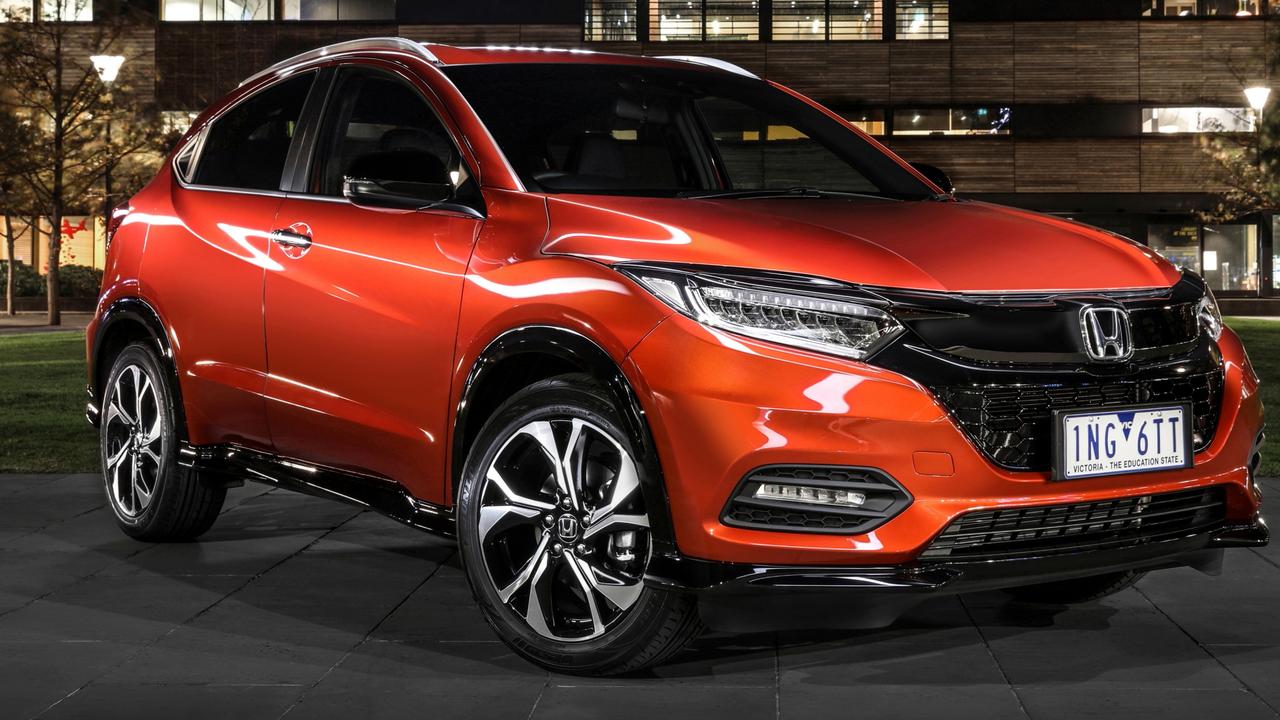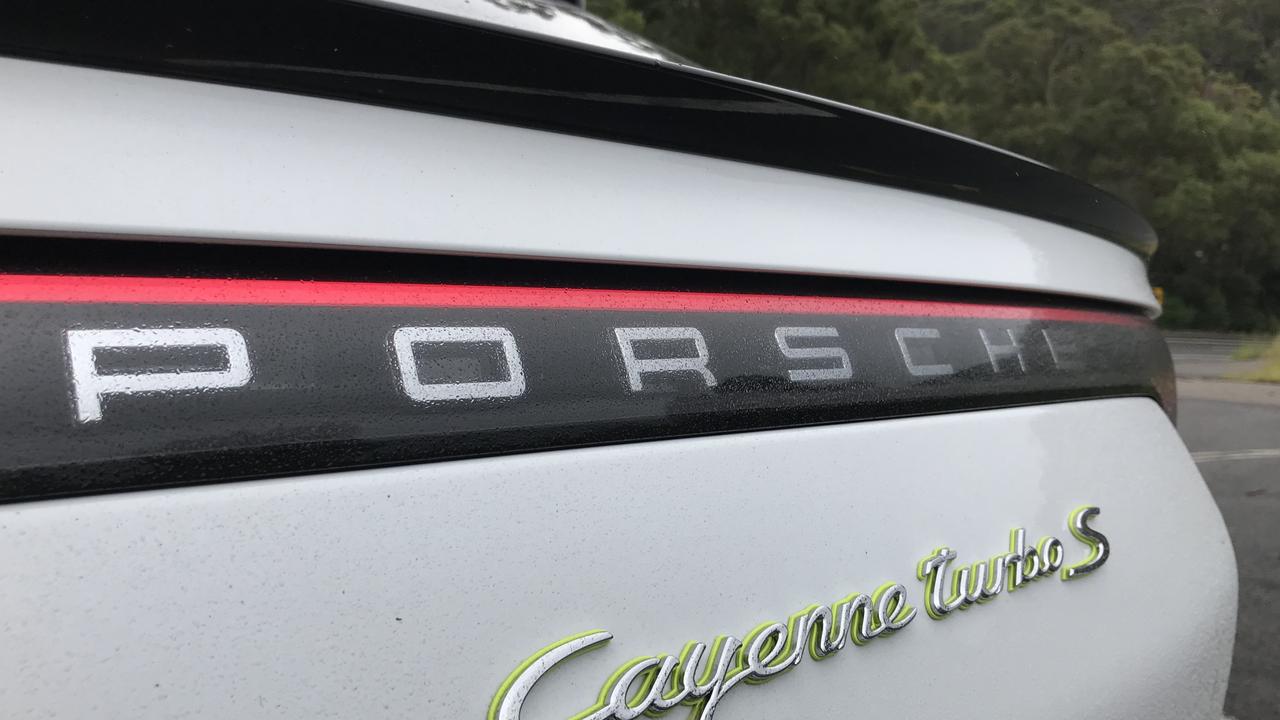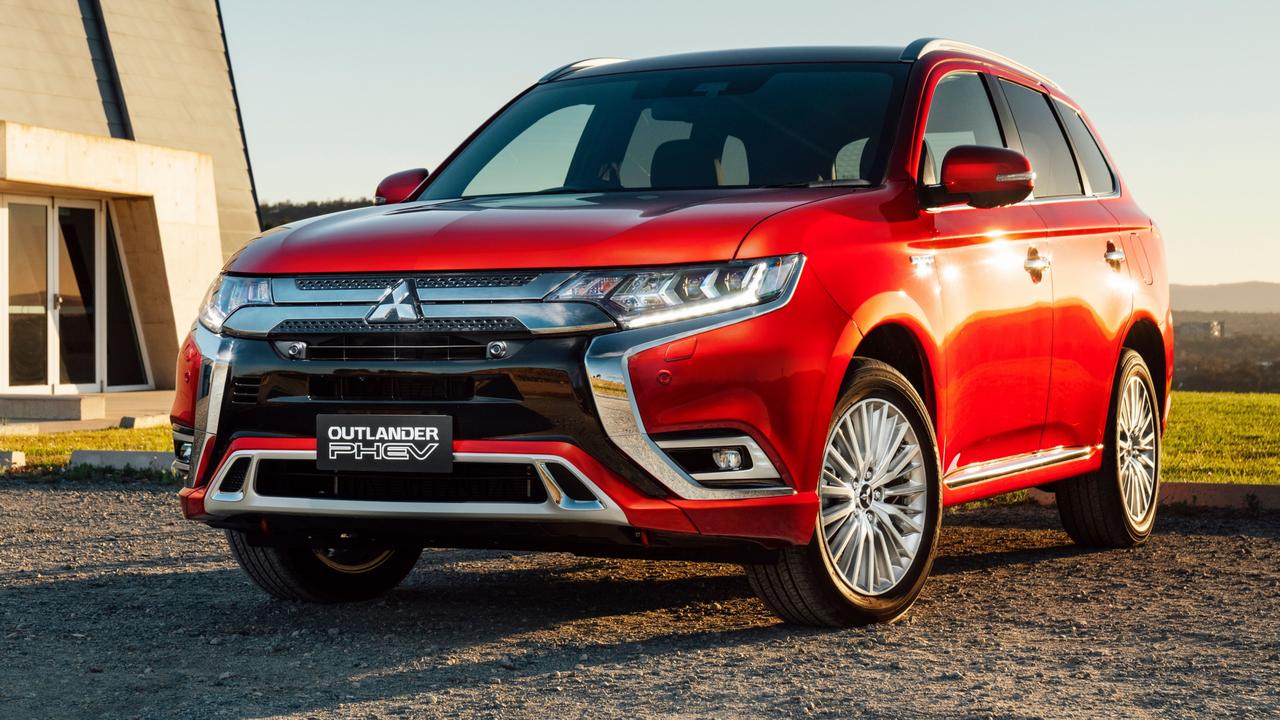Tested: New Toyota RAV4 Cruiser Hybrid
Toyota is the biggest car maker in the world and the most popular brand in Australia, and this new SUV is a big reason why.

I was at the 1994 launch of the original RAV4, held in the Daintree, up in North Queensland. At the time, real men (especially those from North Queensland), drove a Patrol or an 80 Series LandCruiser and “SUV” was a meaningless Americanism. Toyota’s choice of venue reflected its keenness to convince the assembled press that its cute little 4WD funmobile was, at its core, still a rough, tough Toyota.
And it was. We were told to point it at a steep, slippery hill and go our hardest. It went higher, and hung in there for longer, than it had any right to.
Fast forward to this 2019 fifth generation and RAV4 has become the world’s top selling SUV. It has also morphed into a completely different machine. Off-road chops are irrelevant. Connectivity, convenience, style and space are what counts.
RAV4 competes in the most popular segment of the Australian market, where people with young kids go hunting for a wagon. Toyota hopes this model will attract planet-conscious parents with a green lite option, adding hybrid power, for the first time, to its SUV portfolio.
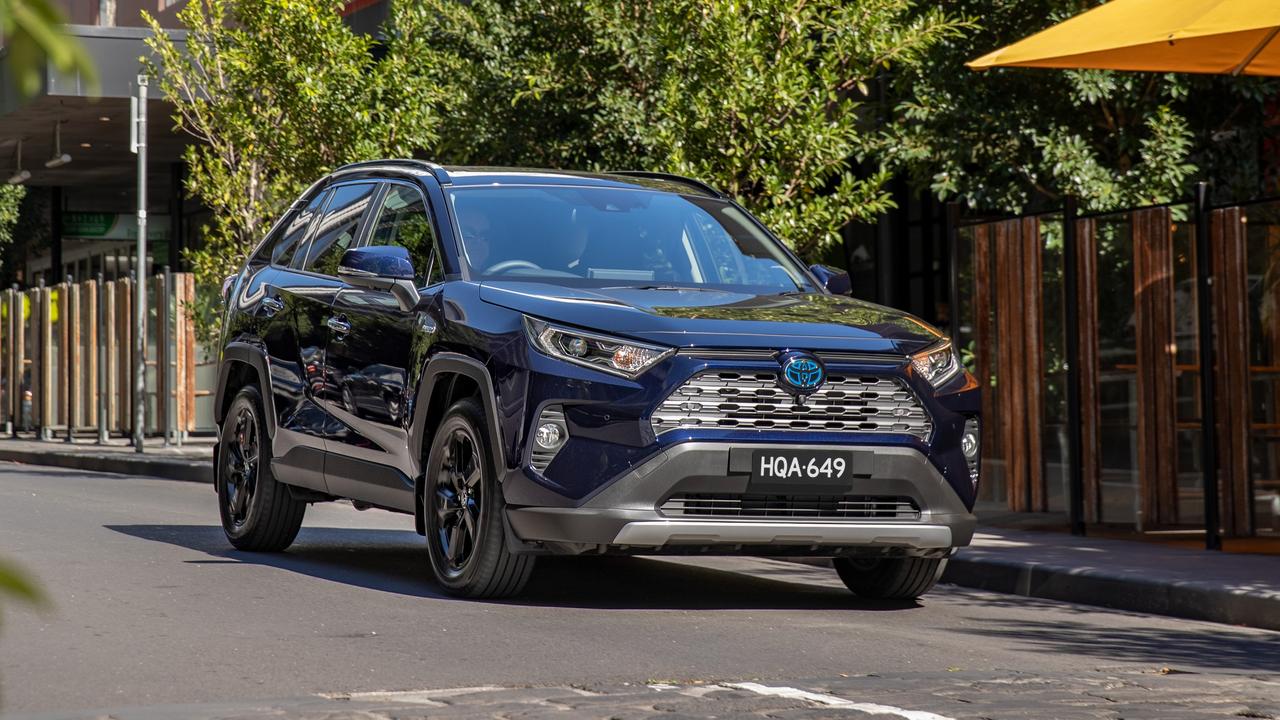
Value
RAV4 prices kick off at $30,640 for the 2.0-litre petrol/six-speed manual front-wheel drive GX.
Front-wheel drive hybrids, with a 2.5-litre engine, twin electric-motor generators and a continuously variable transmission, start at $35,140 for the GX. An all-wheel drive version, with a third electric motor at the rear, is $38,140.
We’re testing the top spec hybrid Cruiser all-wheel drive, priced at $44,640. It comes loaded, with leather seat facings and door trims, power adjustable, heated front seats, a sunroof, JBL audio, power tailgate and dual-zone aircon.
Infotainment includes an eight-inch touchscreen, voice control, navigation, digital radio, five USB sockets (two in the rear) and wireless phone charging; Apple CarPlay and Android Auto will be retrofitted, for free, when they become available later in the year.
RAV has bulked up with each generation and the 2019 model, though slightly shorter than its predecessor, has a longer wheelbase and greater interior space. It’s one of the larger mid-size SUVs, along with Holden’s Equinox, Honda’s CR-V, the Subaru Forester, Mitsubishi Outlander and Nissan X-Trail.
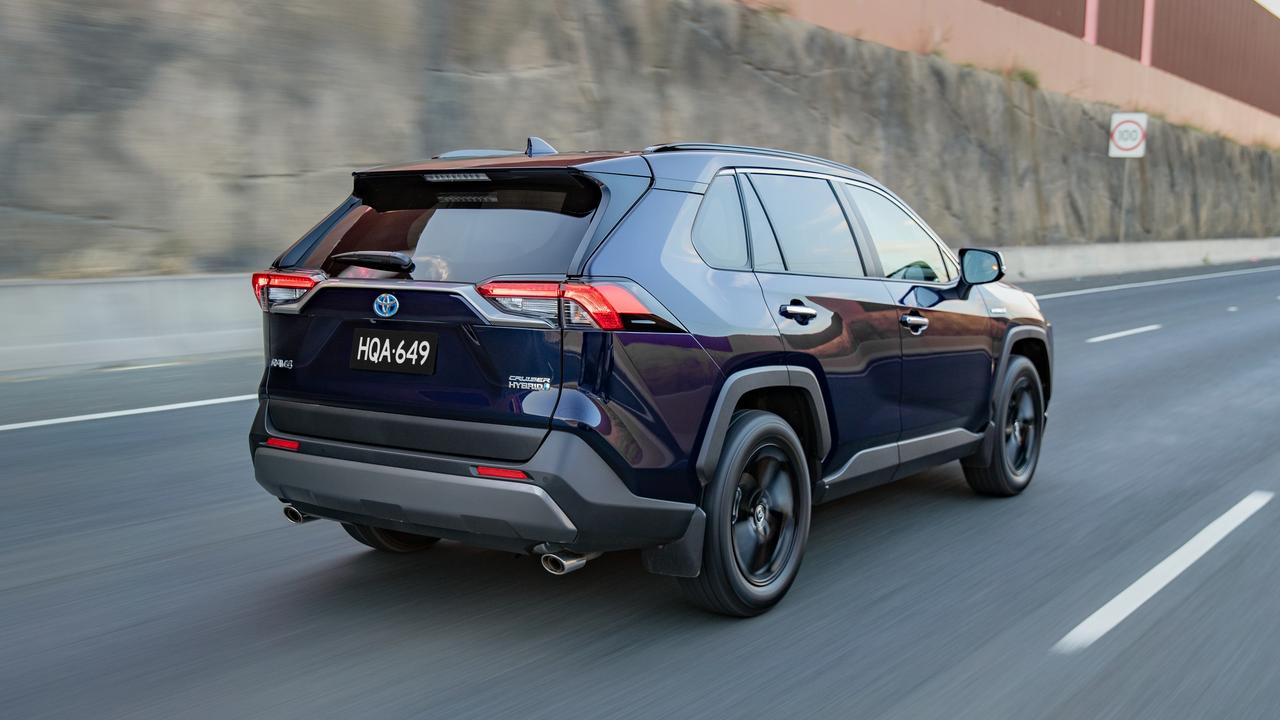
Comfort
You’re seated in a luxurious armchair, facing a well-co-ordinated, stylish dash, with plenty of handy storage and a bright touchscreen with big, easy to hit icons plus a set of manual controls.
Rear-seat legroom is expansive and Toyota claims class-leading boot space as well.
Fit and finish have been significantly upgraded, with the liberal application of soft-touch materials, including rubberised dials and storage compartments, plus tactile, precise controls.
Smooth and supple, especially around town, the ride can become a little crashy on rough roads at speed, where the soft front end occasionally runs out of travel on nasty bumps and potholes.
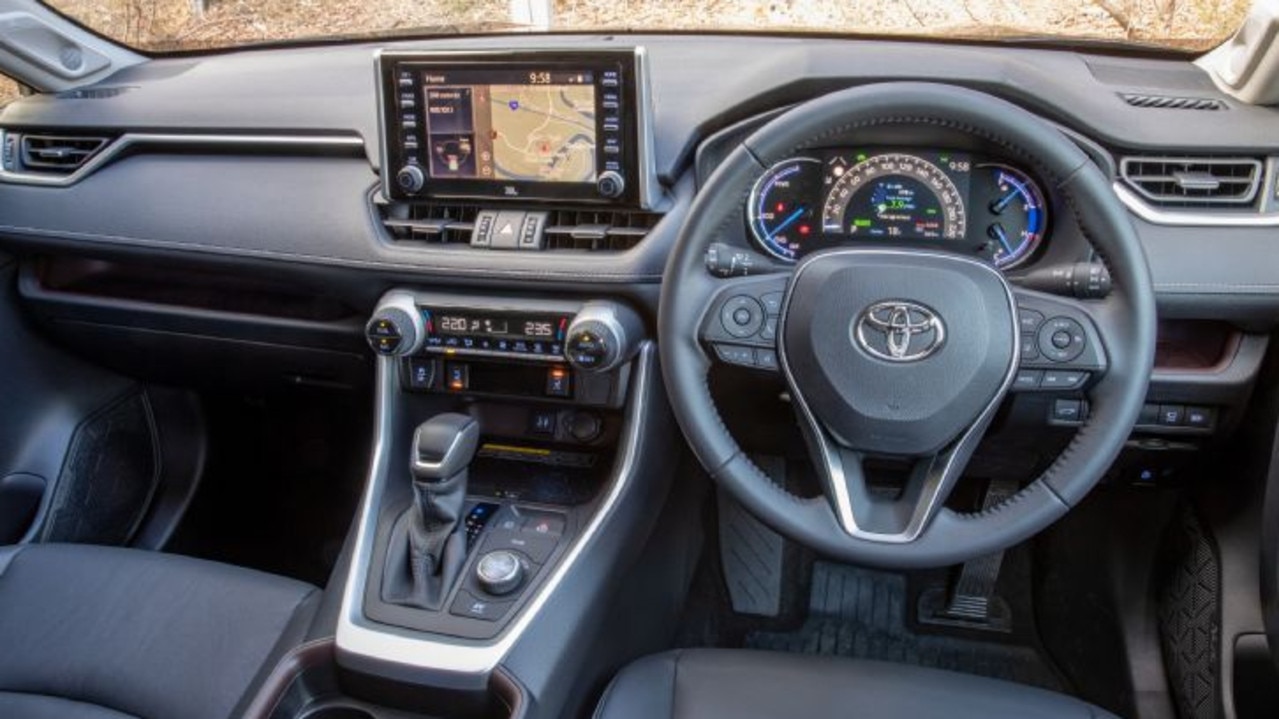
Safety
Subaru raised the bar for safety in this class with its new Forester and Toyota has responded. All models include lane keeping and adaptive cruise control. Cruiser adds surround camera coverage.
Driving
Electricity gets the hybrid smartly and smoothly off the line; petrol power kicks in shortly thereafter. Combined output of 163kW is high for the class, and while the Cruiser weighs in at a hefty 1745kg, the hybrid’s strong, broad torque delivery and a responsive CVT contribute to impressive performance.
Smooth and quiet in cruise mode, the engine does get pretty vocal under acceleration. It’s not a particularly tuneful note, either.
You can drive up to about a kilometre on flat terrain using battery power alone, as long as you stay below 60km/h or so with a gentle right foot.
Around town, expect 5-6L/100km, on regular unleaded, about half the consumption rate of most petrol-powered rivals. Highway consumption is about 7L/100km; those same rivals can match this, or beat it.
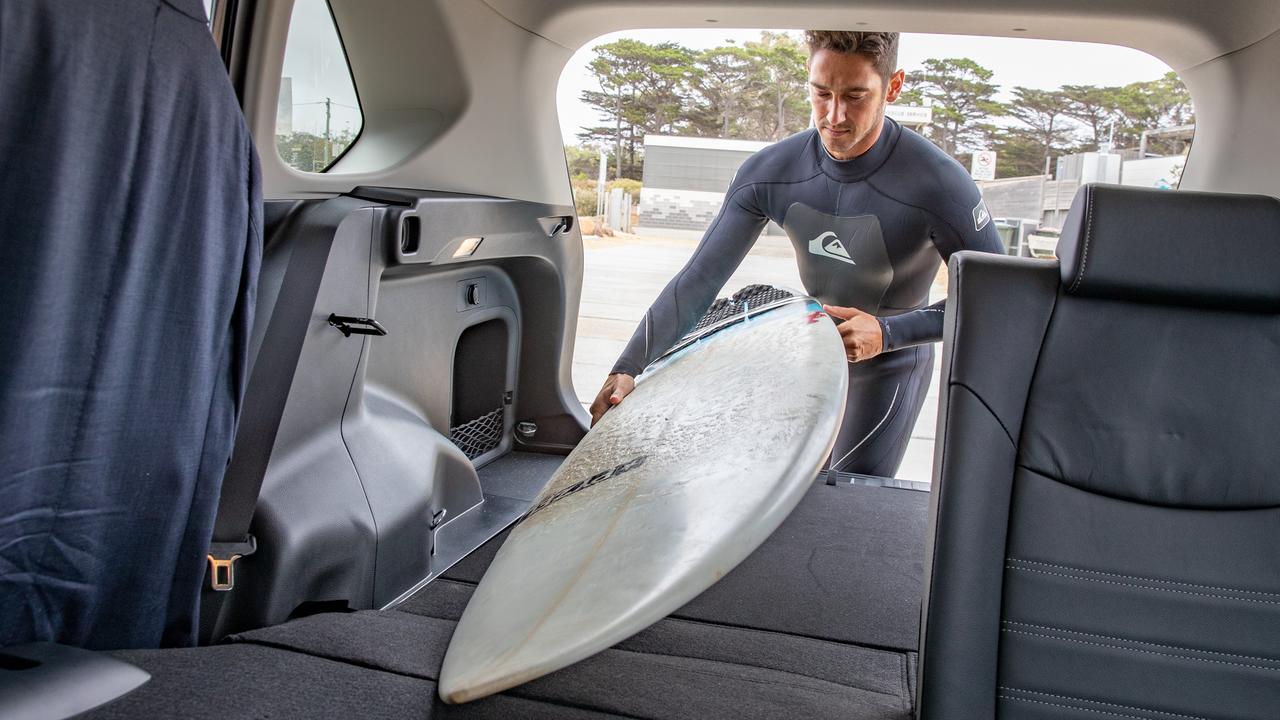
In line with Toyota’s new found commitment to making its cars enjoyable to drive, the 2019 RAV’s dynamics are much better than its sloppy predecessor’s, thanks to a stronger body structure, new multilink rear suspension, wider tracks and, in the hybrid, a low, centred mass.
Light, precise steering and powerful brakes are complemented by all-wheel drive — an asset on dirt roads and in the wet — plus automatic braking to control understeer in corners.
That said, the Cruiser’s tyres aren’t the stickiest around and the front suspension can become a little loose at speed on choppy surfaces.
Heart says
I love the new RAV4’s sharp lines and rakish profile and the kids will enjoy rocking up to school in such a cool-looking wagon. They will also be comfortable, connected and safe.
Head says
Toyota pioneered hybrids and its technology is proven and efficient. The RAV is also very cheap to run and just about perfect in size and specification for the family.
Alternatives
Mazda CX-5 from $35,380
Start money for the 140kW 2.5-litre petrol/six-speed auto/all-wheel drive Maxx. A 2.2-litre turbodiesel option starts at $41,950. The class top seller, with all the safety tech, but smaller than the RAV.
Subaru Forester from $33,840
I reckon it’s between the RAV and this for best in class. Similar in size and safety spec to the Toyota. Runs a 136kW 2.5-litre petrol/CVT/all-wheel drive. Slower, but superior handling at speed.
Rating 4/5
If you’re shopping for mid-size SUVs, add this to your shortlist. It nails the family wagon brief in every respect, and if you haven’t previously considered a hybrid, you will after you take a test drive.
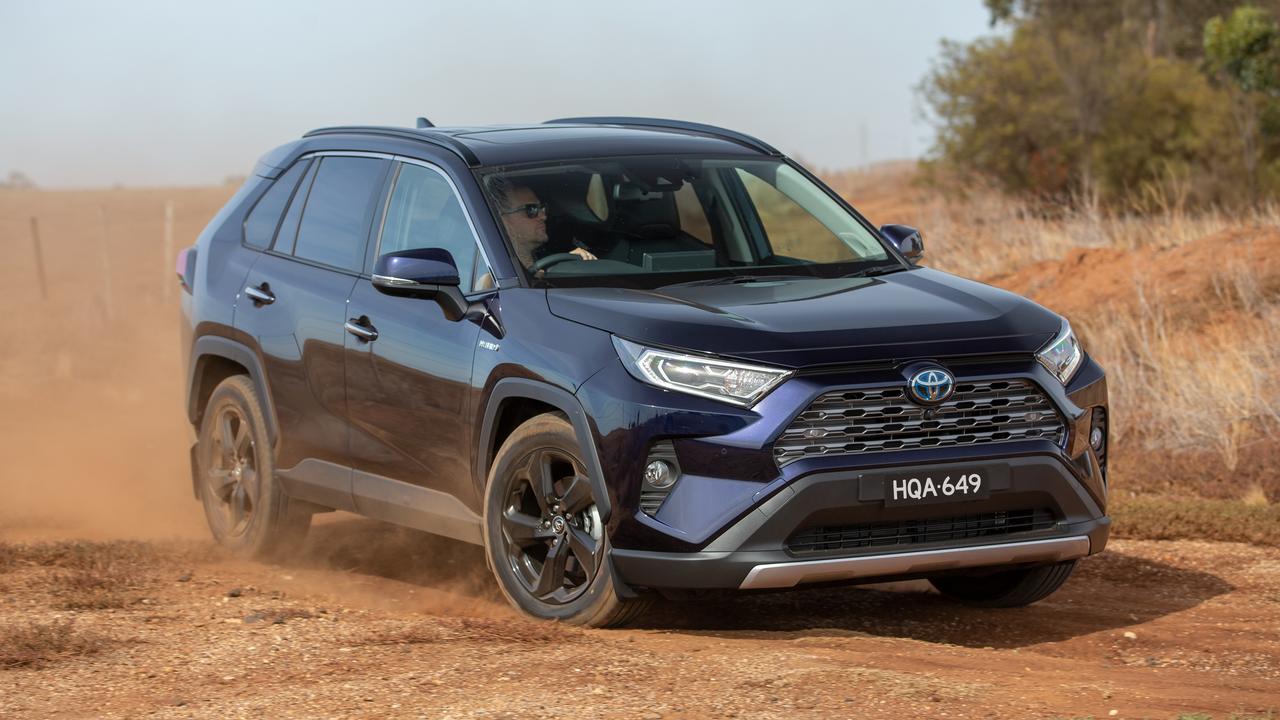
Toyota RAV4 Cruiser Hybrid
Price: $44,640
Warranty/servicing: 5 years; $1050 for 5 years
Engine: 2.5-litre petrol-electric hybrid, 163kW
Safety: Not yet tested, 7 airbags, AEB, blind-spot monitoring, adaptive cruise, lane keeping, surround cameras
Thirst: 4.8L/100km
Spare: Space saver
Boot: 580L

